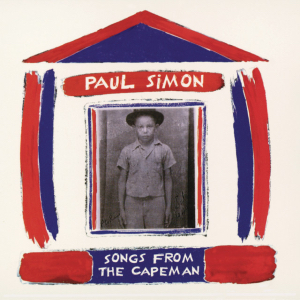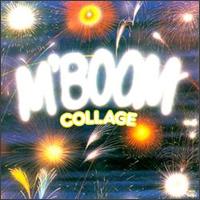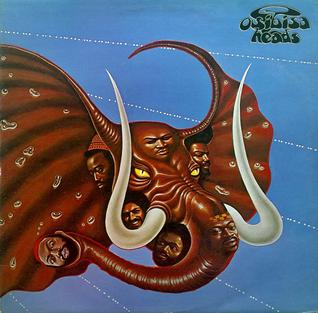Related Research Articles

A percussion instrument is a musical instrument that is sounded by being struck or scraped by a beater including attached or enclosed beaters or rattles struck, scraped or rubbed by hand or struck against another similar instrument. Excluding zoomusicological instruments and the human voice, the percussion family is believed to include the oldest musical instruments. In spite of being a very common term to designate instruments, and to relate them to their players, the percussionists, percussion is not a systematic classificatory category of instruments, as described by the scientific field of organology. It is shown below that percussion instruments may belong to the organological classes of idiophone, membranophone, aerophone and chordophone.
General MIDI is a standardized specification for electronic musical instruments that respond to MIDI messages. GM was developed by the American MIDI Manufacturers Association (MMA) and the Japan MIDI Standards Committee (JMSC) and first published in 1991. The official specification is available in English from the MMA, bound together with the MIDI 1.0 specification, and in Japanese from the Association of Musical Electronic Industry (AMEI).

Timbales or pailas are shallow single-headed drums with metal casing. They are shallower than single-headed tom-toms and usually tuned much higher, especially for their size. They were developed as an alternative to classical timpani in Cuba in the early 20th century and later spread across Latin America and the United States.

The Rhythm of the Saints is the eighth solo studio album by American singer-songwriter Paul Simon, released on October 16, 1990, on Warner Bros. In much the same way that Simon's previous album, Graceland, released in 1986, drew upon South African music, this album was inspired by Brazilian musical traditions. Like its predecessor, the album was commercially successful and received mostly favorable reviews from critics.
Mozambique refers to two separate styles of music.
Latin percussion is a family of percussion, membranophone, lamellophone and idiophone instruments used in Latin music.
Songo is a genre of popular Cuban music, created by the group Los Van Van in the early 1970s. Songo incorporated rhythmic elements from folkloric rumba into popular dance music, and was a significant departure from the son montuno/mambo-based structure which had dominated popular music in Cuba since the 1940s. Blas Egües was the first drummer in Los Van Van, but it was the band's second drummer, José Luis Quintana "Changuito", who developed songo into the world-wide phenomenon it is today.

Shaman is the nineteenth studio album by Santana. Shaman was released on October 22, 2002, and debuted at number 1 on the Billboard 200 with first week sales of 298,973. It was certified Double Platinum by the RIAA and Gold in Greece.

Alejandro Neciosup Acuña, known professionally as Alex Acuña, is a Peruvian–American jazz drummer and percussionist.
Changuito is a Cuban percussionist.

Songs from The Capeman is the ninth solo studio album by Paul Simon, released in 1997. His first new studio album of original materials in seven years, it contains Simon's own performances of songs from the Broadway musical he wrote and produced called The Capeman augmented by members of the original cast. The songs retell the story of Salvador Agron, who was known as the "Capeman". A departure musically from his earlier work, the album features doo-wop, rock 'n' roll and Puerto Rican rhythms and a number of songs contain explicit lyrics, a first for Simon. The stage show was a commercial flop, losing $11 million, and the album did not sell well. It peaked at number 42 on the Billboard 200, the lowest chart position in Simon's career at the time.

Bloody Tourists is the sixth studio album by the English rock band 10cc, released worldwide by Mercury Records and in North America by Polydor Records in September 1978. Recorded at Strawberry Studios South in Dorking, the album was produced by Eric Stewart and Graham Gouldman.
Caribbean Jazz Project was a Latin jazz band founded in 1993. The original group featured Dave Samuels, Paquito D'Rivera, and Andy Narell. After their second album, D'Rivera and Narell left the group, although both returned as guest stars. Under Samuels' leadership, the group explored different genres of latin jazz with a changing membership and numerous guest artists. The band released nine albums under the Caribbean Jazz Project name and one as the featured backing band for jazz singer Diane Schuur. The final album with Samuels, Afro Bop Alliance, featured the Maryland-based Afro Bop Alliance Big Band led by drummer Joe McCarthy and won the 2008 Latin Grammy Award for Best Latin Jazz Album. McCarthy's latin jazz big band continues to record under its own name, and Samuels retains the group's name.

Dismiss the Mystery is the seventh studio album released by the Christian rock band, Salvador.
Jorge Dalto was a pop, jazz and Afro-Cuban music pianist from Argentina, and the former musical director and keyboardist for George Benson, contributing the acoustic piano intro and solo to Benson's 1976 Grammy-winning hit version of Leon Russell's "This Masquerade". He also performed with Tito Puente, Grover Washington, Spyro Gyra, Fuse One, Gato Barbieri, Willie Colon and others. He died of cancer at the age of 39.

Collage is an album by American jazz percussion ensemble M'Boom led by Max Roach recorded in 1984 for the Italian Soul Note label.

Heads is the third album by British Afro rock band Osibisa released in 1972.
This is a partitioned list of percussion instruments showing their usage as tuned or untuned. See pitched percussion instrument for discussion of the differences between tuned and untuned percussion. The term pitched percussion is now preferred to the traditional term tuned percussion:

In the Groove is an album by Planet Drum, a percussion-based world music ensemble led by Mickey Hart, Zakir Hussain, Sikiru Adepoju, and Giovanni Hidalgo. It was released on August 5, 2022.
References
- 1 2 3 4 "Rhibosome". Australian Music Online. Archived from the original on 30 September 2007. Retrieved 9 July 2008.
- 1 2 Keelan, Peter. "Whak". Peter Keelan Official Website. Archived from the original on 8 September 2011. Retrieved 21 March 2017.
{{cite web}}: CS1 maint: bot: original URL status unknown (link) - 1 2 3 4 5 "Rhibosome – Electronica Synthesis". InTheMix. Junkee Media. 22 June 2004. Archived from the original on 18 January 2016. Retrieved 9 July 2008.
- ↑ Drever, Andrew (24 May 2002). "In come the outsiders". The Age . Fairfax Media . Retrieved 21 March 2017.
- 1 2 Rhibosome (Media notes). Rhibosome (performers). Hydrofunk Records. 2002. HF 20.
{{cite AV media notes}}: CS1 maint: others in cite AV media (notes) (link) - ↑ GFusion (14 May 2002). "Reviews: Rhibosome CD Launch @ Globe, Perth (10/05/02)". InTheMix. Archived from the original on 16 June 2003. Retrieved 21 March 2017.
{{cite web}}: CS1 maint: bot: original URL status unknown (link) - 1 2 Eliezer, Christie (10 July 2007). "Festival & Tour Guide: Flow Dynamics". TheMusic.com.au. Archived from the original on 17 February 2009. Retrieved 21 March 2017.
- ↑ "Releases:: 'Get Ready'". Australian Music Online. Archived from the original on 6 September 2007. Retrieved 21 March 2017.
{{cite web}}: CS1 maint: bot: original URL status unknown (link)